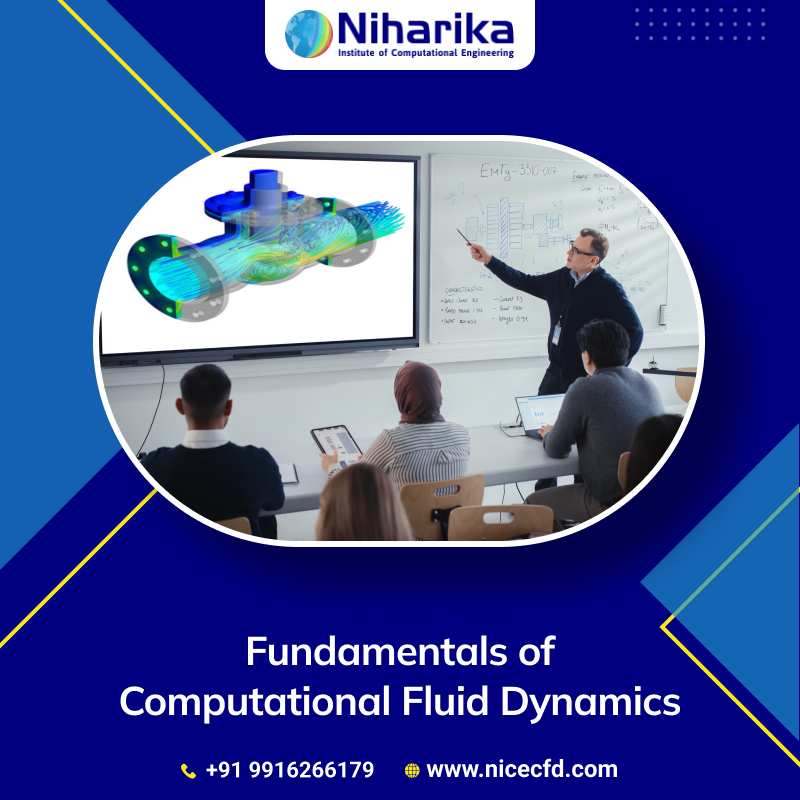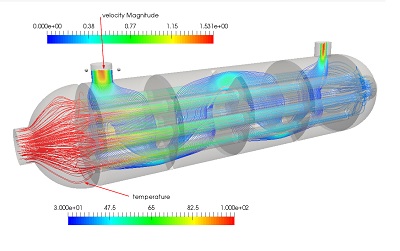Computational fluid dynamics is a rapidly developing field of engineering. It equips engineers and scientists with a powerful tool set to simulate and analyze the complex fluid flow and heat transfer phenomena. This proficiency unlocks a multitude of opportunities across various industries, from aerospace and automotive to environmental engineering and biomedical applications. So, if you are looking to advance your career in engineering, research, and related fields, taking cfd training can prove extremely beneficial. With CFD expertise, you can tackle real-world engineering problems, enhance problem-solving skills, and optimise designs without the need for physical prototypes.
CFD offers better career opportunities by providing a specialised skill set in high demand across industries. It also provides a competitive edge in the job market, potentially leading to higher-paying and more fulfilling careers. In this blog, we will explore some of the basic fundamentals of computational fluid dynamics.
Understanding the Fundamentals of Computational Fluid Dynamics
Cross-disciplinary applications of CFD allow individuals to explore diverse sectors, contributing to advancements in aerodynamics, combustion processes, environmental sustainability, and more. Read on to learn more about its key components and underlying concepts.
Grid Generation
Grid generation is the process of dividing the domain of interest into a grid or mesh. This discretisation allows for the representation of fluid and flow properties at specific points within the domain. Different types of grids, such as structured, unstructured, and hybrid, are used based on the complexity of the geometry. Students should grasp the importance of grid quality and refinement in ensuring accurate CFD simulations.
Comprehending the fundamental principles of CFD is imperative for anyone interested in utilising this potent engineering tool. The most effective approach to achieve this understanding is to enroll in computational fluid dynamics training. Through such training, individuals gain the knowledge and skills necessary to harness the potential of simulations, thereby enabling them to innovate and fine-tune designs, resulting in enhanced performance, efficiency, and reliability.
Governing Equations
The Navier-stokes equations form the cornerstone of fluid dynamics and describe the conservation of mass, momentum, and energy in a moving fluid. These equations are differential equations that need to be discretised for a numerical solution. Students should become proficient in understanding and applying these equations to model fluid behavior in various scenarios.
Boundary Conditions
Boundary conditions specify the behavior of the fluid at the boundaries of the computational domain. They can include prescribing velocities, pressures, temperatures, or other relevant parameters. By learning how to choose and implement appropriate boundary conditions, students can accurately model real-world fluid flow situations.
In case you want to make a career in biomedical engineering, mastering CFD can be an added bonus. It helps in studying blood flow patterns, designing medical devices like artificial hearts and valves, and optimising drug delivery systems. Moreover, an engineer who has completed cfd training can also have an advantage when applying for a position at an aerospace company looking for someone to optimise the airflow around their next-generation aircraft.
Solver Algorithms
Solver algorithms play a crucial role in solving the discretised governing equations. Students should be familiar with numerical methods like finite difference, finite volume, and finite element methods. Understanding the strengths and limitations of different solvers is essential for obtaining accurate results in CFD simulations.
Turbulence Modeling
Turbulence is a common and complex phenomenon in fluid flow. Simulating turbulence accurately is a significant challenge in CFD. Students should gain a basic understanding of turbulence models, which are mathematical representations used to approximate the effects of turbulence on the flow. This knowledge will be invaluable when dealing with real-world turbulent flow scenarios.
Final Thoughts
CFD is a powerful tool used in engineering and scientific research to simulate and analyse fluid flow behavior. For students aspiring to pursue careers in aerospace, automotive, biomedical, and various other engineering fields, understanding the basic fundamentals of CFD is crucial. Should you be looking for an institute that provides the best cfd training, join Niharika Institute of Computational Engineering. We provide diverse course offerings and flexible learning options to help students and working professionals master CFD and excel in their careers.













